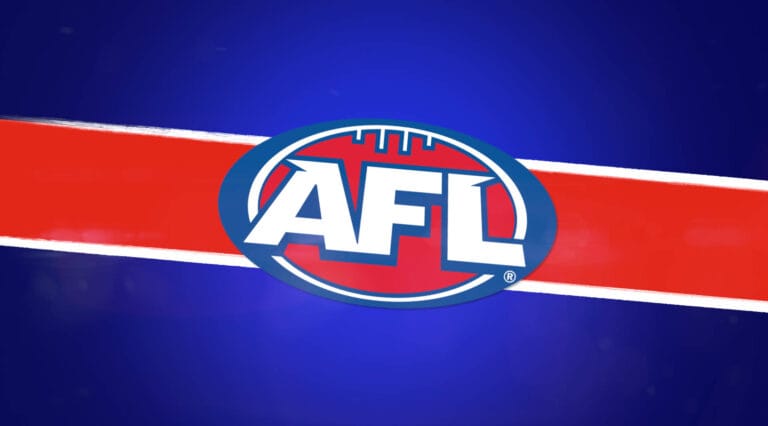Rachel moved a motion, which if passed would allow a legal defence for medicinal cannabis patients who test positive for THC at a roadside drug test but are not impaired.
While medicinal cannabis has been legally prescribable since 2016, THC presence in a driver’s system still results in an automatic loss of licence, regardless of impairment. THC traces remain in the body long after the effects have worn off, meaning patients can lose their licence despite following prescriber directions. Meanwhile, other impairing medications are not tested for at all.
Without a legal defence, medicinal cannabis patients are left disadvantaged, with many turning to medications such as opioids, despite higher risk of adverse reactions.
Wednesday 31st of July, 2024
Victorian Legislative Council
Rachel Payne (South-Eastern Metropolitan):
I rise to make a contribution to this motion 437 in my colleague David Ettershank’s name. Legalise Cannabis Victoria calls on the government to immediately establish a legal defence for medicinal cannabis prescription holders charged with the presence of THC in their system while driving. If they take their medicine in accordance with a prescription and they are not impaired when tested, they should not be discriminated against. We want to make it clear we believe anyone that is impaired should not be driving, and this is not something that this motion seeks to change.
We need to treat medicinal cannabis like any other prescription medication. What we currently have in Victoria is policymaking hypocrisy at its finest. In saying that, Legalise Cannabis Victoria does welcome the government’s amendments. I would like to refer to the government speaker Mr Galea and his contributions and acknowledge that the 400,000 Victorians that are medicinal cannabis patients referred to in Mr Galea’s contribution would like to see that the government is committed to taking, as Mr Galea stated, a ‘measured and methodical’ approach and seeking ‘appropriate counsel and guidance’. I appreciate, as my colleague Mr Ettershank would appreciate as well, that the government has committed to finding a pathway forward together with Legalise Cannabis Victoria, and the emphasis here is on putting patients first.
I would also like to highlight that there has been some discussion around road safety and the driving trial. This motion does not seek to change the status quo. We do not seek to change the roadside drug testing practices that are currently happening. But what we do seek is to allow for a magistrate to have the discretion to change the patient’s fining or onset of a loss of licence. We would like to see that if there is a charge instigated, that is not something that a magistrate cannot have discretion on. It is about putting patients first, and I am glad that the government has stated and recognised this.
I would also like to thank Ms Crozier for her contribution in the chamber today, particularly around the fact that it is recognised that we are talking about a prescription medication here. We are talking about a relationship between a patient and a doctor. Again I agree with Ms Crozier’s commentary here that a doctor is best at advising patients as to how to take their medication. Ms Crozier also highlighted the issue that roadside drug testing does not have the ability to test all other drugs. We know this. I agree with you on this. What the current roadside drug testing does do is it tests for the presence of THC, it tests for methamphetamine and it tests for MDMA. It does not test for cocaine. It does not test for opiates. It does not test for benzodiazepines. On that note, I would also like to thank Mr Limbrick, who has been an advocate in this space for many years and has spoken of this in this chamber for many years, for highlighting the fact, which I was not aware of, that there are actual testing abilities there for Victoria Police to have these tests capture not only THC and methamphetamine but a multitude of other drugs. They are just not using those. I mean, what a curious point that is to make.
Ms Purcell, I thank for her contribution, particularly in recognising the patient’s experience. I also understand as someone who represents people who live outside of the city environment that there is a requirement there to drive. As Ms Purcell stated, being a regional member, you do have to have that discussion with your doctor around ‘Do I stop taking my medication, or do I drive?’ And this is the predicament that patients are facing. One story I would like to highlight is from a patient that we have been working with, a person who has contacted us and who told us:
I am a 39-year-old female terminal cancer patient who has used prescription cannabis for pain and nausea relief, daily, since 2022…
I have been prescribed … opioids, including hydromorphone for severe cancer-related pain. I prefer and choose to use prescribed THC cannabis for pain and nausea relief as this has less extreme side effects (including medication-induced anorexia and insomnia). The laws in this country, and specifically Victoria, would allow me to use hydromorphone (which is undetected by any form of roadside testing) legally whilst driving.
I would never do this and would never condone anyone using this opioid whilst driving. I just want to point out to you, that many cancer patients are able to get relief from pain and nausea through using THC products, but choose not to use those and instead opt for something like hydromorphone, due to the legal implications of roadside testing. It boggles my mind that the laws behind roadside testing remain this way.
… I really hope that common sense prevails one day … Hopefully before I die!
Many of my colleagues in the chamber today have talked about patients, and we have to remember that this is what this is about. We are talking about people taking their legally prescribed medication. Mr Galea even referred to the fact that cannabis is even life saving for many people for treating different sorts of illnesses or ailments. We do have an obligation to do the right thing here by people like the people we have been speaking to. This affects real-life people in the everyday.
We also do not want to see people’s agency removed from them by limiting their ability to drive. The existing system treats medicinal cannabis differently to any other prescription medication. Like the story I have shared with you today, many people are telling us that it is simply too hard and they have stopped taking their medicinal cannabis. Concerningly, instead they take opioids and benzodiazepines. Often they suffer horrific side effects from these medications and are well and truly impaired. But under Victoria’s road laws, they can still drive. In some cases people may stop taking their medication altogether, and for people with conditions like insomnia or epilepsy, the consequences of this on their ability to drive safely are immense. Medicinal cannabis was legalised in Victoria eight years ago in 2016. This means it will be 10 years from when medicinal cannabis was legalised until patients can possibly, maybe, even have the chance of being accounted for in the driving laws, if we just go on the driving trial as a measurement of when we will be seeing change.
What we would like to see, though, in the interim, is that patients have a court date. Instead of just an instant loss of licence for six months for a first-time offence and 12 months for a second-time offence – this is black and white, this law – what we would like to see is that a magistrate has that ability to review that patient’s records, see the fact that they are a patient, see their scripts, see their doctors’ referrals and make a decision based on the evidence that is in front of them.
While we await the outcomes of the government’s driving trial this problem continues to exist, and this is why we have brought this motion before the Parliament today. Now in Tasmania medicinal cannabis patients are protected if they take their medicine in accordance with their prescription and are not impaired, and these laws have not caused the sky to fall in. In fact in Tasmania, when we compare the eight years since medicinal cannabis was legalised with the eight years before them, we see that both the rate of serious injuries and the rate of fatalities have decreased.
As my colleague said today, there are numerous studies confirming that THC has a minimal impact on driver impairment, yet here in Victoria we deny patients protection. Even if you are not impaired and have taken your medicine as prescribed, you are charged and you will lose your licence. It is black and white. The loss of licence resulting from a charge is devastating for anyone, but it is particularly devastating for those who rely on driving for employment, education and access to health services. We have heard from people who have lost their jobs and had to sell their homes because they have lost their ability to drive. We would like to see Victoria’s road laws reformed today. We believe the evidence is there, and we think that this driving trial will only tell us what we already know.
We do welcome the government’s commitment to working with us in looking at ways that we can work with lawmakers and work with magistrates in finding a solution for patients and allowing them that legal defence in court.
Related Resources
> Tradies and Parents Campaign for a U-turn on Unfair Medicinal Cannabis Driving Laws – Rachel Payne
> Medicinal Cannabis Driving Reform – Rachel Payne
> Road Safety Amendment (Medicinal Cannabis) Bill (2023)
> Being well or being allowed to drive? That shouldn’t be a choice
> Premier keeps prescribed medicinal cannabis patients from driving, by kicking ‘research’ can down the road





